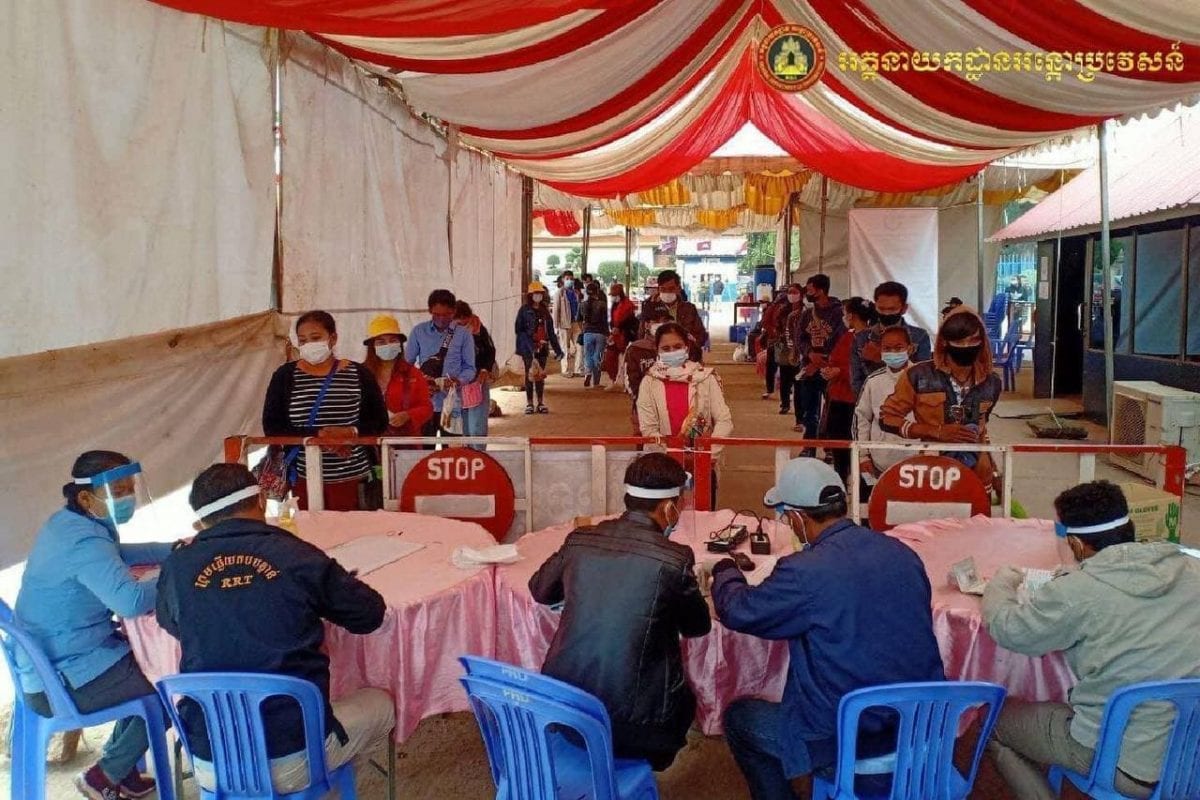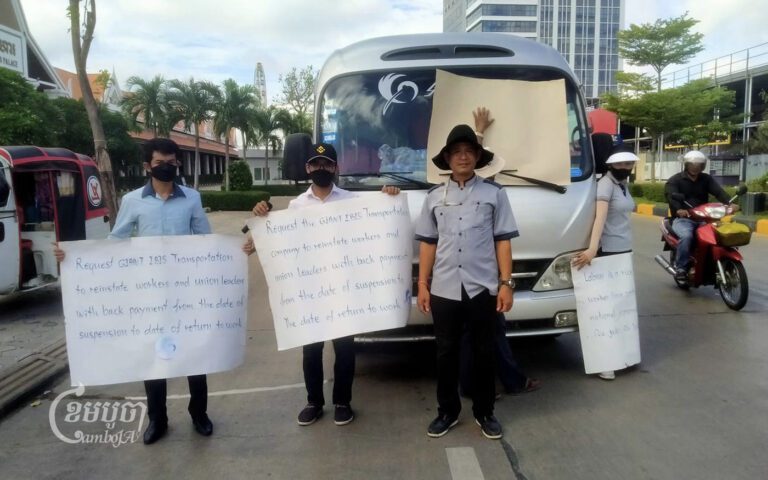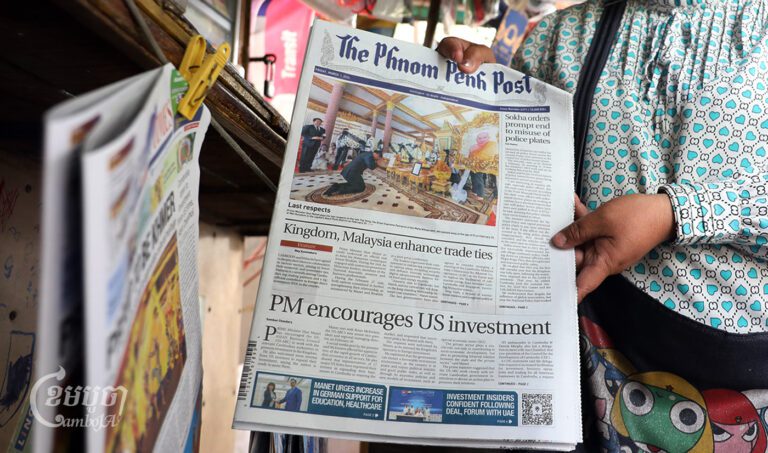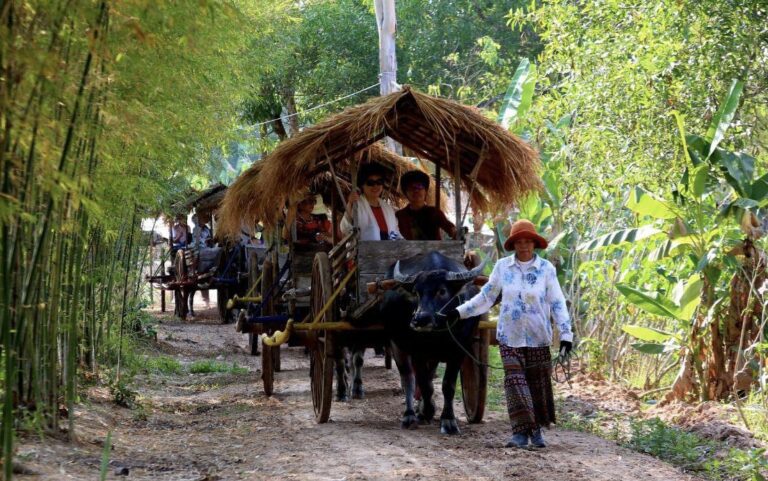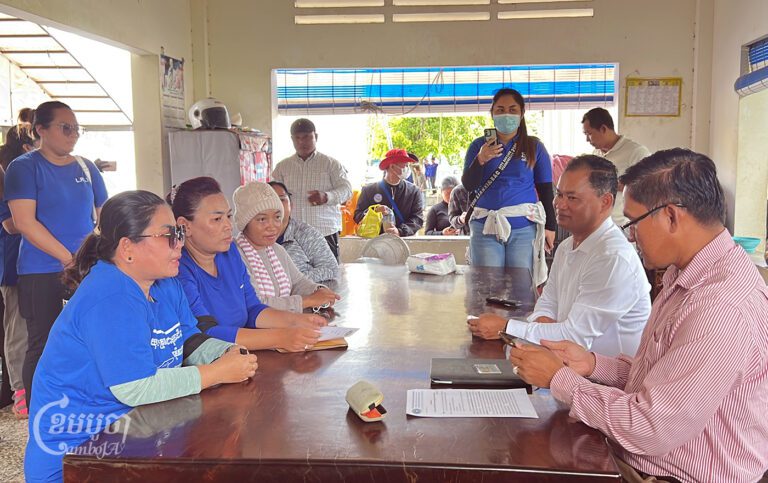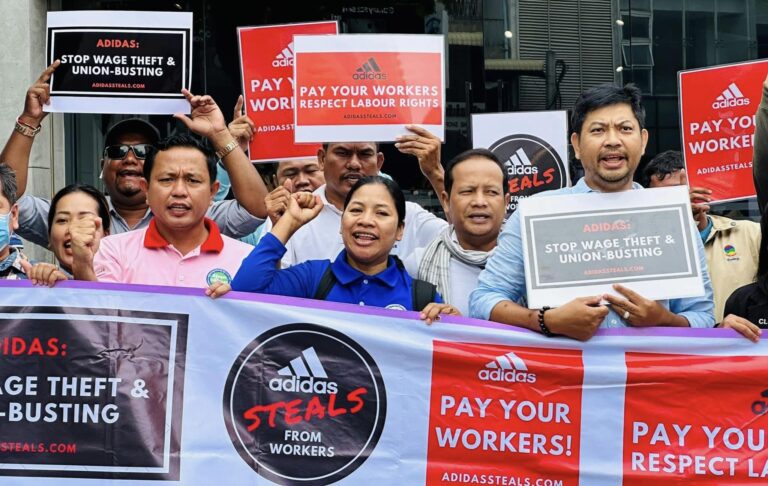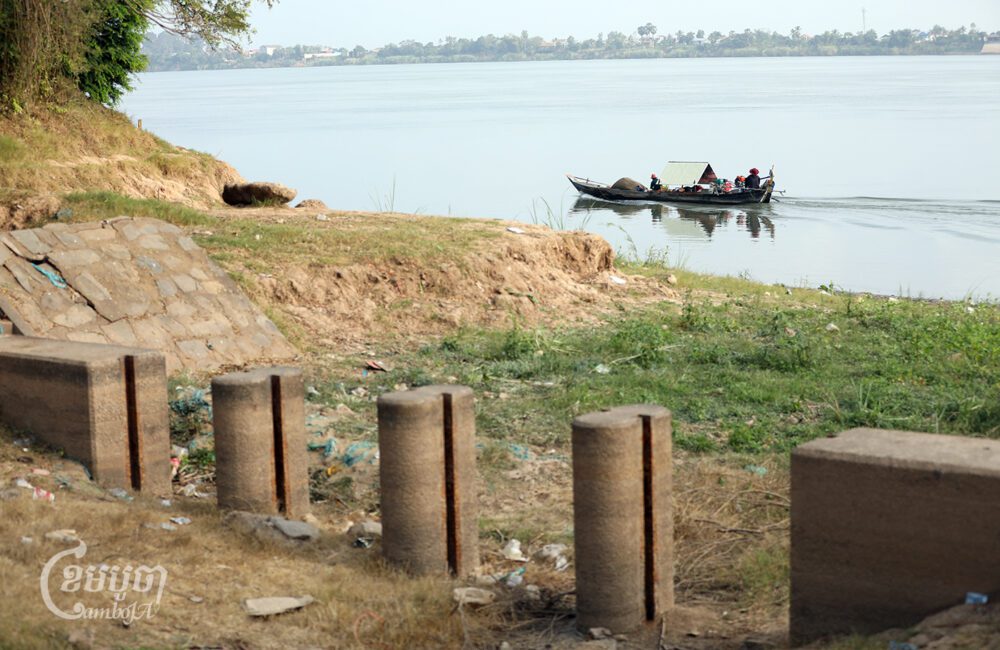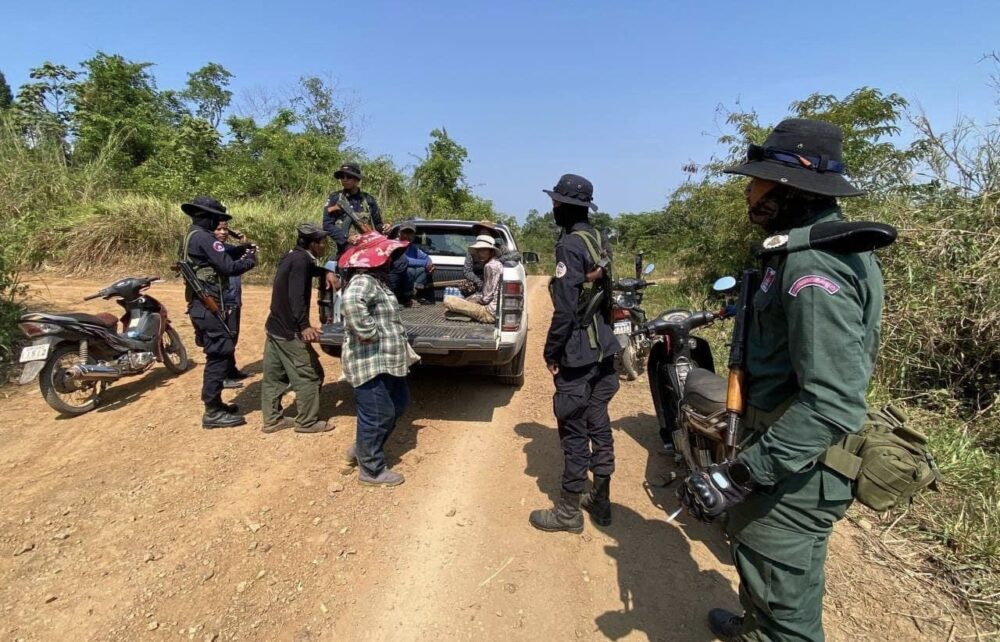Migrant workers who ignore COVID-19 protocols when returning from Thailand will face legal action, the government said, with more than 1,300 passing through official checkpoints this week following a fresh outbreak in the southern Thai province of Samut Sakhon.
Almost 1,000 samples had been taken from returned workers for testing, according to reports from officials at border provinces, while Health Minister Mam Bunheng warned authorities there to be on high alert for migrants ignoring strict protocols.
“If anyone does not respect quarantine measures … authorities must take action with fines between 200,000 riel and 1 million riel and criminal punishment,” Bunheng said in a statement on Wednesday.
More than two million Cambodians are thought to work in Thailand, about half of them illegally, according to United Nations figures. More than 100,000 rushed home as borders were closed in March.
After an outbreak of more than 500 cases in the seaside province of Samut Sakhon last week, Cambodian Prime Minister Hun Sen instructed migrant workers to stay put in order to contain the virus.
Thai authorities attempted to block migrants from leaving Samut Sakhon but more than 400 have this week returned through Oddar Meanchey province as fears over the outbreak rise, said Dy Rado, spokesman for the provincial government.
Meanwhile, Banteay Meanchey and Battambang provinces registered 805 and 164 returnees this week, according to officials there, with the majority of them tested for the coronavirus and quarantined at the border awaiting results.
“Health officials took samples from any migrant worker suspected [of having symptoms] and those who came from the area in Thailand where the outbreak occurred,” Rado said.
In Banteay Meanchey, 733 samples were taken for testing, according to Ly Sary, spokesman for the provincial office, while 136 migrants were tested in Battambang, said deputy provincial governor Soeum Bunrith.
Those not tested were ordered to return to their homes and quarantine for 14 days, officials said.
As of Thursday morning, none of the samples had come back positive, according to Health Ministry spokeswoman Or Vandine, though she did not specify how many of the tests had been processed.
Vandine reiterated calls for migrant workers to avoid traveling until the outbreak is contained.
“For our Cambodian people working in Thailand, it is very important that when there is a COVID-19 outbreak, people do not move around because they could be at higher risk,” she said.
As of Thursday, Cambodia had registered 363 cases of COVID-19 and no deaths, according to a Health Ministry tally, with 351 recovered.
Cambodians who had fled Samut Sakhon were mostly illegal migrants who were afraid of detection from Thai authorities, said Loeng Sophon, a program officer for labor rights group Central, adding that the majority of migrants in the area were from Myanmar.
“They don’t have passports and their bosses don’t pay close attention to them, so if they want to leave, they can,” he said, referring to Cambodians who had fled.
A wave of anti-migrant sentiment broke out in Thailand this week following inflammatory comments from Thai Prime Minister Prayuth Chan-o-cha and health minister Anutin Charnvirakul, who said “the source [of the outbreak] is likely migrant workers.”
The Mekong Migration Network, an advocacy group, released a statement on Wednesday condemning the ministers, saying it was “counterproductive to point the finger at migrants,” who are often forced to work in unsafe conditions, with bosses failing to enforce common COVID-19 protocols.
“Rather than seeking a scapegoat, the current outbreak … brings into sharp focus the disproportionate impact that the pandemic is having on the livelihood and health of Thailand’s much maligned migrant workers,” it said.


